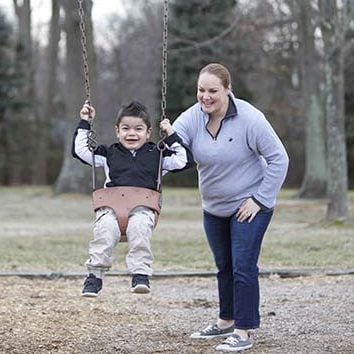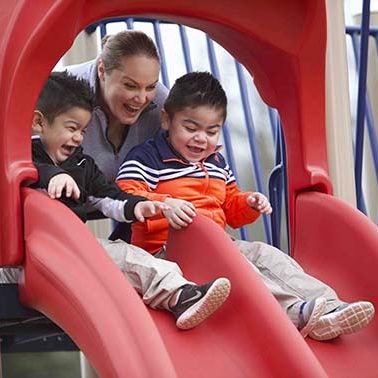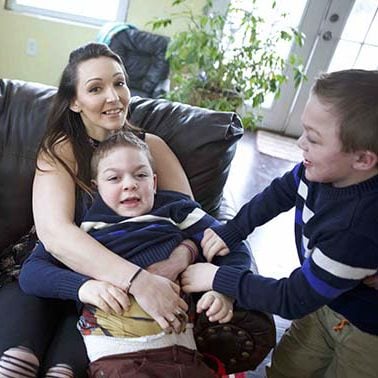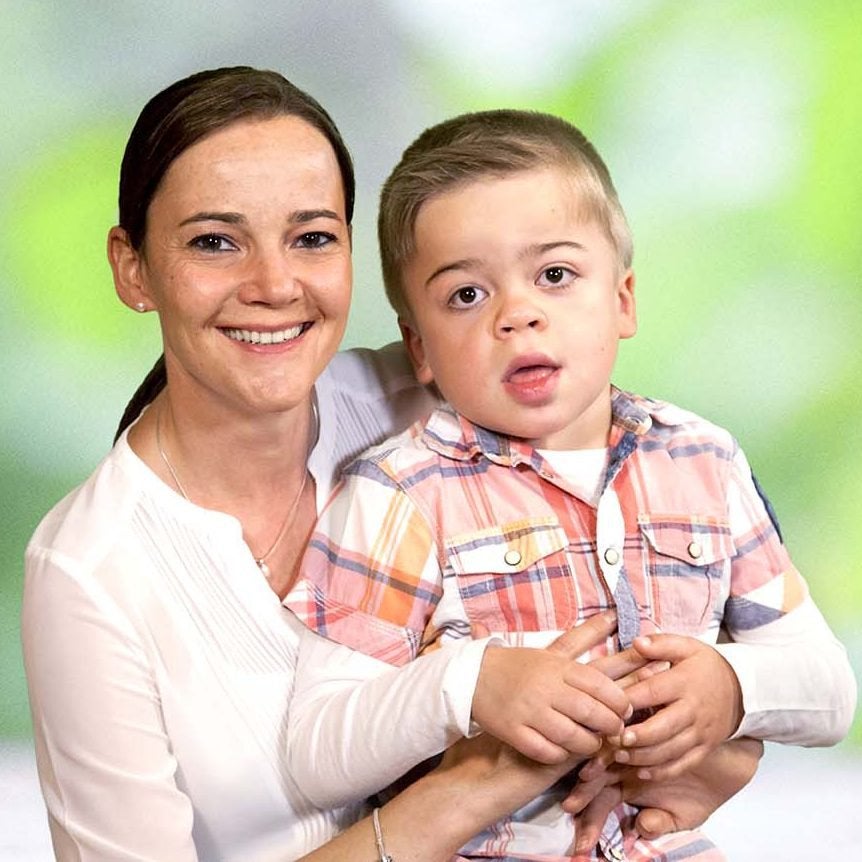What are the signs and symptoms of Hunter syndrome?
Hunter syndrome has a variety of signs and symptoms. Hunter syndrome can affect any part of the body. The symptoms of Hunter syndrome, and their progress and severity, are different in each person.
It is important to remember that many of these signs and symptoms are common in childhood, and it is the combination of them that may indicate Hunter syndrome. Not all patients will have all of the signs and symptoms, and they progress differently, so there is no typical patient experience.
There are two types of Hunter syndrome; these are known as neuronopathic (with cognitive impairment) and non-neuronopathic (without cognitive impairment). Both types experience signs and symptoms that affect the body, but the neuronopathic type also has symptoms that affect the brain and nervous system, meaning that behaviour and development are also affected. Nearly 7 out of 10 people with Hunter syndrome have the neuronopathic type of the disease.
Symptoms usually show between the ages of 2 and 4 years in the neuronopathic type, whereas the non-neuronopathic type generally presents symptoms later in childhood.
Non-Neuronopathic
Neuronopathic
BEHAVIOURAL PROBLEMS
- Hyperactivity
- Obstinacy
- Aggression
NEUROLOGICAL
- Cognitive decline
- Seizures (may be ‘absence’ seizures, i.e. staring)
HEAD
- Particular facial features, such as a prominent brow, broad nose and thick lips
- Large head
- Sight problems
- Large tongue
- Irregularly shaped teeth
BONES AND JOINTS
- Joint stiffness, which may lead to restricted movement
- Curled-in fingers
- Carpal tunnel syndrome
ABDOMEN
- Enlarged belly
- Hernias (umbilical or inguinal)
- Frequent or long-term diarrhoea
OTHER
- ‘Pebble skin’: white bumps that may form ridges
- Short in height (from around 5 years of age)
- History of frequent surgeries (e.g. carpal tunnel release, hernia repair, tympanostomy)
DEVELOPMENTAL
Delays in childhood development e.g.
- delayed walking
- delayed speech
MOTOR FUNCTION
Motor function problems
EARS AND NOSE
- Frequent ear infections
- Hearing loss
- Long-term runny nose
HEART
Heart murmur or heart valvular disease
BREATHING
- Frequent coughs and colds
- Breathing problems, including noisy breathing and snoring
Hunter syndrome is a progressive disease
Children with Hunter syndrome often appear healthy at birth. The signs and symptoms of the condition become apparent as the glycosaminoglycans (GAGs) start to build up in the cells and organ systems of the body.
As the GAGs accumulate over time, the signs and symptoms of Hunter syndrome will progress. In neuronopathic Hunter syndrome, as well as the symptoms affecting the body progressing, symptoms affecting the brain and nervous system will also advance, meaning that there will be a decline in speech, learning and cognitive abilities.
Unfortunately, many symptoms of Hunter syndrome cannot be reversed once they have progressed to a certain point. However, it is important to remember that every child with Hunter syndrome is different, and there is no single disease course.
The symptoms affect life expectancy. The life expectancy for those with non-neuronopathic Hunter syndrome is early adulthood, however, some people can live into their fifth or sixth decade. The life expectancy for those who have neuronopathic Hunter syndrome tends to be within the second decade of life.
The progressive nature of the disease means that early diagnosis is essential, so that disease management can begin as soon as possible.


Learn more about how these families are living with Hunter syndrome



